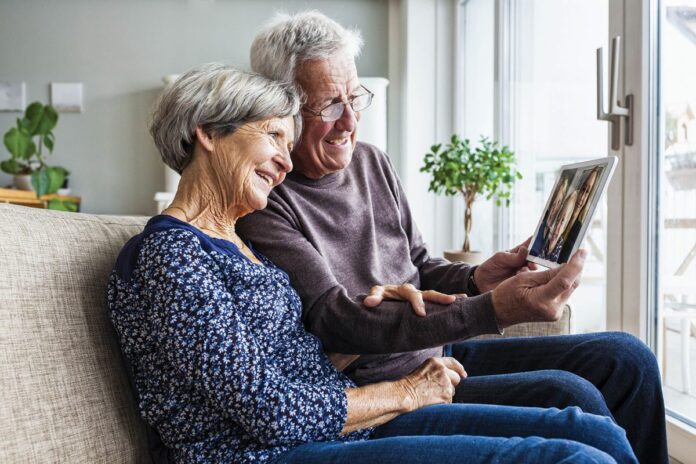People all are encouraged to stay home to contain the spread of coronavirus, and experts have especially urged older adults, who are at a higher risk of complications from the virus, to stay inside to protect themselves.
Not all elders can connect with family online. Some do not have the technology available, while other may find it challenging. Others may have hearing and visual difficulties or cognitive impairments. Technology is not a necessity if it will add more stress to an already stressful time.
“Instead, call your loved ones on the phone or send letters and postcards. Children can send drawings to their grandparents as well. Others may visit their elderly loved ones by waving and speaking through the window,” says Dr. Angela Catic, assistant professor in the Huffington Center on Aging at Baylor College of Medicine.
Family members or neighbors can offer to run errands or get groceries. Some stores are offering to delivery groceries for a cost.
“If there are alternatives to going to the stores, like neighbors, family or delivery, I would encourage them to do that to further minimize their exposure to others during this time,” Catic said.
Explain to parents and grandparents the best way to prevent significant spread of the virus is by keeping distance from one another. Educate them and explain that this is a new virus, so no one is immune, and we are lacking a vaccine.
“Staying home is not inaction, it’s action,” Catic said. “Discourage them from going out if they can stay home.”
Many older adults are feeling isolated, but if they are distancing at home, they can still connect through the phone, letters and postcards.
Catic encourages people of all ages to follow a routine and think of ways to engage mentally and physically. Exercise at home with walks around the house and gentle stretching.
If older adults have regularly scheduled doctor’s appointments, contact the doctor’s office ahead of the visit. Many doctors are converting to telephonic and video visits to protect patients from increasing their risk of exposure for non-urgent issues.
“We don’t want older adults to feel abandoned. Their doctors are available to care for them while taking steps to reduce potential exposure to the virus,” Catic said.
Some people live in multigenerational households, which makes distancing difficult. All family members should minimize social contact. This is important for everyone in the home, not just older adults.




